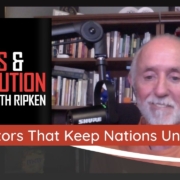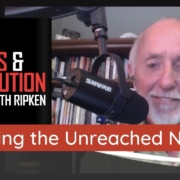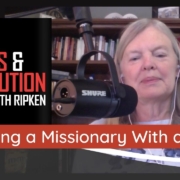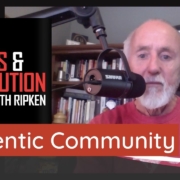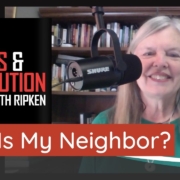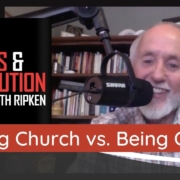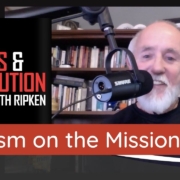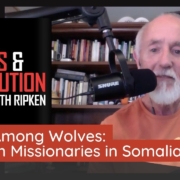Factors That Keep Nations Unreached
Nik concludes a series investigating why unreached nations are still unreached by exploring the practical components that keep churches from sending and going. Nik looks at everything from the cost of personnel to weather. There are surprising reasons that are hard to overcome on our way to the hard places of the world.
Be sure to subscribe to the Witness & Persecution Podcast on your favorite platform.
Extreme Climate
Extreme climatic conditions can create formidable challenges for evangelistic efforts in specific regions. Nations may be located in extreme climates, such as polar regions, deserts, dense jungles, or isolated islands. These environments pose difficulties for missionaries to reach and sustain their presence. These areas often lack proper infrastructure, making transportation arduous and unreliable. Harsh weather conditions, such as freezing temperatures, scorching heat, or torrential rains, can further deter missionaries from establishing long-term communities.
Moreover, the inhabitants of these regions may have adapted to their environment, leading to unique cultural and religious practices that resist outside influences. Isolation and survival priorities can overshadow religious curiosity, making missionary work a daunting task.
Expensive Costs
The financial burden associated with establishing and maintaining missionary operations in unreached nations is substantial. The cost of transportation, especially in remote areas with limited access, can be exorbitant. Missionaries may require specialized training, equipment, and resources to adapt to the specific challenges posed by the environment and culture of the region.
Additionally, language barriers and cultural differences demand the need for translators and local guides, adding to the expenses. In some cases, a lengthy period of language and cultural adaptation is necessary before effective evangelism can occur, further increasing the financial investment.
Low Number of Conversions and Baptisms
The low number of conversions and baptisms in unreached nations can be attributed to several factors. Firstly, the entrenched religious beliefs and practices of the local population often create resistance to outside influences. Traditional belief systems and religious ideologies may be ingrained for generations and difficult to change.
Secondly, the absence of religious freedom or legal protections in these regions can hinder missionary work. Governments may enact restrictive laws that make proselytizing illegal, punishable, or heavily regulated. This hostile environment may lead to fear among locals and deter them from embracing new faiths.
Thirdly, the absence of established religious infrastructure, such as churches, religious leaders, and places of worship, makes it difficult for new converts to access resources and support for their newfound faith. This lack of support networks can lead to the isolation of individuals who are considering converting.
Reduced Funding
Insufficient funding is a recurrent issue faced by missionaries attempting to reach unreached nations. Missionary work is often carried out by faith-based organizations, churches, or individual volunteers relying on donations and contributions. However, due to competing global priorities, the limited attention paid to unreached nations can result in reduced funding for evangelistic efforts in such areas.
Moreover, the perception of high-risk and low-yield outcomes in unreached regions can dissuade potential donors from allocating resources to these endeavors. As a result, missionaries might struggle to secure the necessary funds for their operations, limiting their reach and impact in unreached nations.
These Factors Hinder Evangelism
Unreached nations remain a complex challenge in missionary work due to multiple factors such as extreme climates, expensive costs, low numbers of conversions and baptisms, and reduced funding. Overcoming these barriers requires innovative approaches, collaborative efforts between organizations, and strategic planning.
By addressing these factors, we can better adapt our strategies. Missionaries can leverage advancements in technology and communication, and foster meaningful connections with unreached people groups. Moreover, collaboration with local communities, respecting their cultures, and understanding their needs are essential to building trust and successfully spreading religious beliefs in these regions. With determination, sensitivity, and adequate resources, we can gradually break down the barriers to reaching unreached nations. This will allow us to usher in new opportunities for spiritual growth and cultural exchange.

